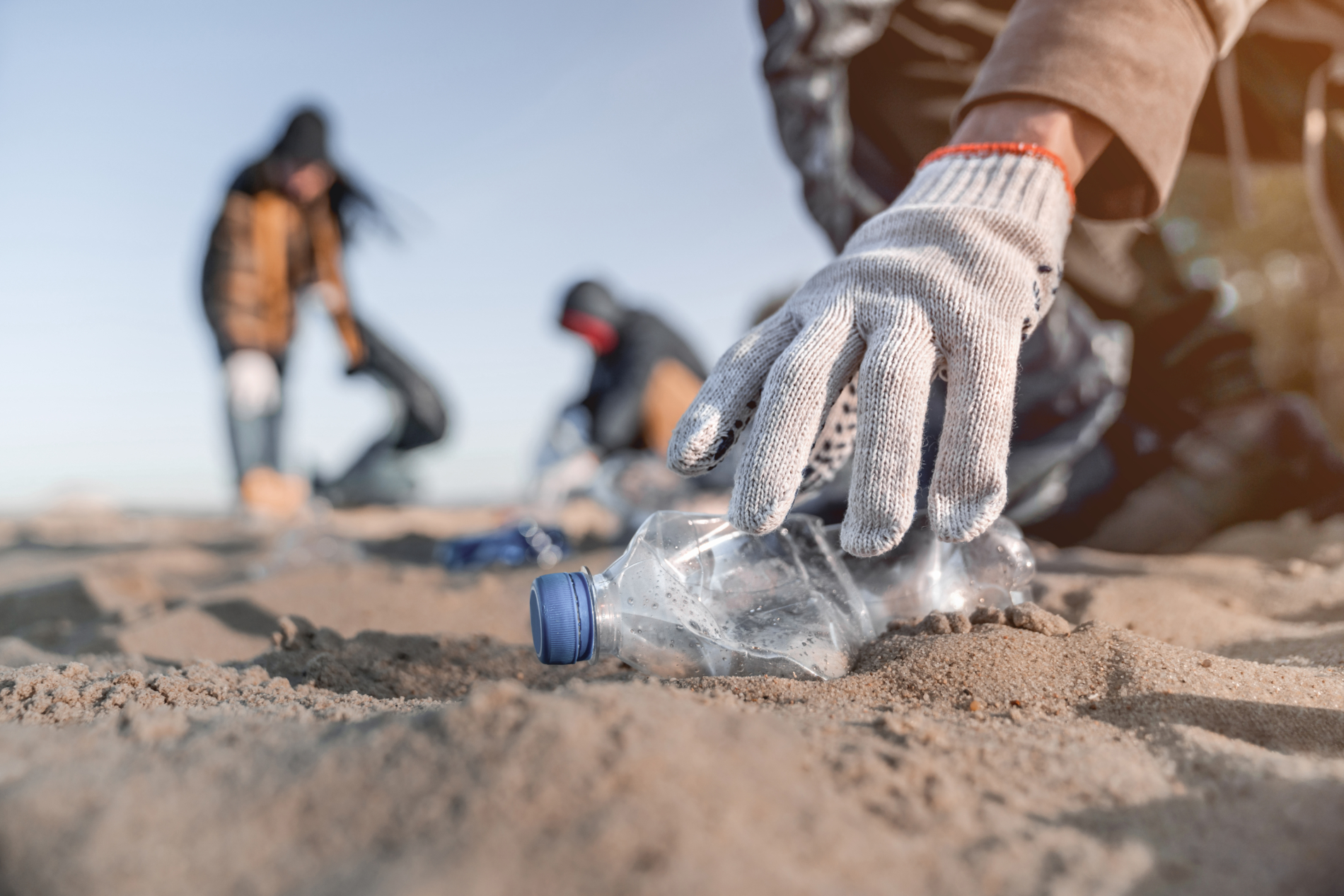Many Norwegians assume that the plastic that litters Norway’s beaches comes from Asia. Reality tells a different story.
That is the theme of the first episode of the podcast Kystpuls from Centre for the Ocean and the Arctic. In the podcast, guests Rolf-Ørjan Høgset of In the Same Boat, Karoline Andaur of the World Wildlife Fund, and Marius Storli of North Agency discuss lesser-known aspects of one of our most pressing environmental problems.
Major gaps between facts and knowledge
– There is a huge gap between the facts and what people know, says Rolf-Ørjan Høgset in the podcast.
A former celebrity and advertising photographer, Høgset now leads the beach cleanup organisation “In the Same Boat”.
– We’ve studied Norwegians’ beliefs and knowledge about plastic litter on the coast. And we found that four out of five Norwegians believe that the litter along our shores comes from other countries, and many of them are under the impression that the litter on Norway’s beaches comes from Asia, he adds.
According to Høgset, 80% of the plastic waste they find on the beaches comes from Norwegian fisheries and aquaculture industries. In other words, most of the plastic waste comes from Norwegian sources, and the rest comes from neighbouring countries around the North Sea.
Global problem – global struggle
Even though marine plastic is a major problem in our own waters, it is in Southeast Asia the problem of plastic litter is greatest. Norway is working hard to alleviate this problem by providing foreign aid to counteract marine litter. This year’s NRK Telethon also puts marine plastic on the agenda: the money raised will go to WWF’s activities aimed at keeping plastic from ending up in the sea in Asian coastal states.
– Indonesia, the Philippines, Vietnam, and Thailand account for about a quarter of the world’s plastic waste. That’s why the money from the Telethon will go to projects in those countries, so the work starts where the problem is most severe, says Karoline Andaur, secretary general at WWF.
– These countries tend not to have effective waste management systems, so large amounts of plastic end up in the environment and the ocean. Countries such as Indonesia and Vietnam have also begun receiving trash and plastic from abroad, even though they lack good systems for handling waste. That means even more plastic goes where it shouldn’t be.
No desire to pollute
International cooperation and foreign aid are absolutely necessary to ensure adequate waste management in Asia’s developing countries. But such efforts don’t necessarily help reduce the amount of plastic along Norway’s shores, as many Norwegians may assume. The reality is that many of our own ports lack adequate waste reception facilities.
In the podcast, Marius Storli, head of the firm North Agency, which provides a range of services to the shipping industry, speaks of how he observed that beach cleanup was not enough in Norway’s fight against marine plastic. More prevention was needed.
– Norwegian marine industries have no desire to pollute, he says.
Unfortunately, good alternatives are not always available.
– For example, fisheries have big problems with trash in their catches. Fishing with a net is a perfect way to catch trash. But when they’ve got their catch on deck, they have no place to put the trash. And it costs them hard-earned cash to deliver it for waste management on land. So unfortunately, it often goes back in the ocean again, he says.
Against this background, Storli and North Agency decided it was their civic duty to step up. In the podcast Kystpuls he tells more about their solution to the Norwegian plastic problem – and how ordinary people can help.
Challenging myths
Kystpuls is produced in collaboration with Både Og, and is an initiative from Centre for the Ocean and the Arctic to raise public awareness. Advisor Ida Folkestad Soltvedt leads both the project and the podcast.
– We want Kystpuls to get the Norwegian people engaged in important issues related to the ocean and society. Our goal is to spread knowledge – and perhaps challenge a few established truths in the process, says Soltvedt.
The podcast (in Norwegian) can be found here: https://pod.space/kystpuls/trailer

